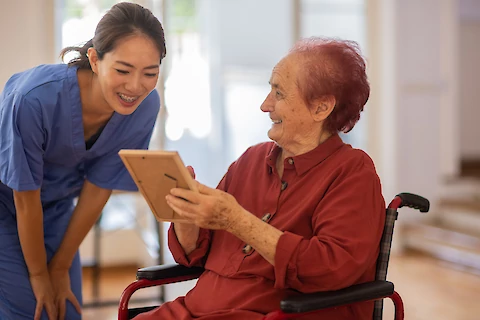
Chronic Traumatic Encephalopathy (CTE) is a condition that affects many people of all ages and lifestyles. Understanding and coping with a relative's CTE diagnosis can be challenging. However, with the right information, you can ensure your loved one enjoys the best quality of life despite their condition.
Senior Helpers of Greater Dallas will guide you through this journey, providing tips on ensuring home safety, managing medical treatments, and effectively handling behavioral changes that may arise due to CTE.
Understanding Chronic Traumatic Encephalopathy
CTE is a progressive neurodegenerative disease that often affects individuals who have experienced repeated brain trauma. It could be both sports-related concussions and severe head injuries. Symptoms of CTE may include memory loss, mood swings, depression, and, in later stages, more serious cognitive impairment.
Day-To-Day Care for a Senior With CTE
Managing the day-to-day care of a senior with CTE requires understanding and patience. We have compiled helpful tips and discover how you can make the process more manageable.
Safety Is a Primary Concern
Adapt your senior's living space to prevent incidents. It might include anchoring heavy furniture to the wall, removing tripping hazards, and installing handrails in necessary areas like the bathroom.
Coordinating Medical Appointments and Treatments
Scheduling is another important aspect of care. Keeping track of medications, appointment times, and necessary follow-up services can be overwhelming, but organization makes it manageable. Consider using a calendar or a digital reminder system to help keep everything in order.
Calming Behavioral Changes or Mood Swings
Cognitive and emotional shifts are common symptoms of CTE. These can be challenging to manage, but remember, it's the disease, not your loved one, causing these changes. Approach these situations calmly and empathically, and talk to your loved one with care. Always be patient and retain a level head. Consult your loved one's doctor or a mental health professional for strategies tailored to their symptoms.
Practical Advice for Caregivers
As a caregiver of a senior with chronic traumatic encephalopathy, looking after your health and well-being is just as important. Even a coffee date with friends can help you rest and reset for the busy days ahead. It's not uncommon to experience caregiver burnout, and reaching out for help can make managing these feelings easier.
Accepting help from others, whether from friends, family, or professional caregivers, can make a significant difference. A support network can alleviate the pressures of caregiving, allowing you to recharge and be the best caregiver you can be.
Enjoy Custom Senior Care Services
At Senior Helpers of Greater Dallas, we understand the unique challenges of caring for a senior with CTE. Our team of experienced caregivers can provide the support you need, allowing you some respite while ensuring your loved one's needs are met.
Caring for a senior with CTE is a journey that requires understanding, patience, and support. If you live in Dallas, Richardson, Farmers Branch, or University Park, and need professional caregiving support, contact us at Senior Helpers of Greater Dallas. We're here to help you navigate this journey.